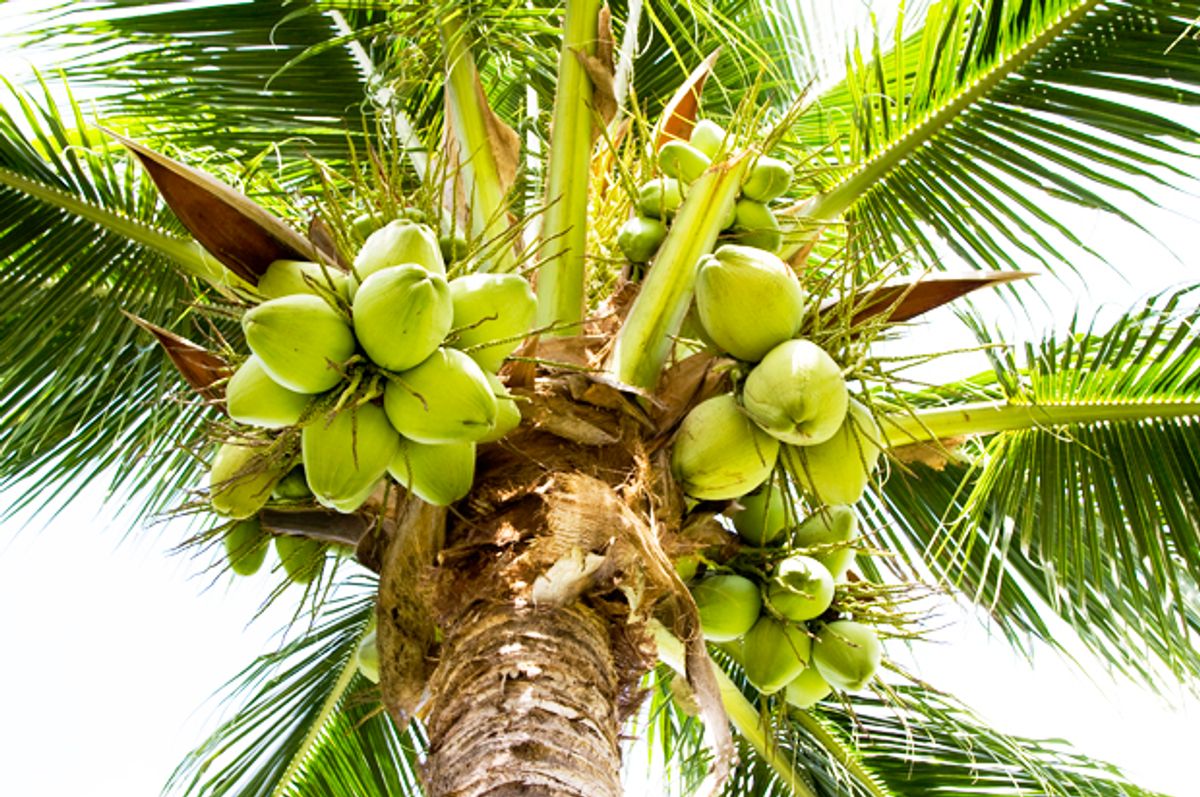While studying at Darden Business School at the University of Virginia, Luis Solis began to wonder why the U.S. market didn’t have more natural juices derived from fruits grown in Latin America and the Caribbean. There are, after all, at least 55 million Hispanics in the U.S., and many of them have a taste for juices squeezed from passion fruit, guava, mango and other tropical delights. Solis found that many of the existing products in the U.S. contained added sugar and lacked the flavors and textures he remembered growing up in the Dominican Republic.
So in 2014, Solis, 28, and his business partner Cristian F. Robiou, 27, a fellow Dominican-American and Harvard Law School grad, founded Caribé Exotic Juice, launching their first juice products in grocery stores and restaurants in Miami and Mid-Atlantic states. This week the company is expanding into the metro New York area with four flavors (guava, passion fruit, starfruit and acerola cherry) and is planning their first marketing campaign.
But this business model is about more than just making and selling juice products. As undergraduates, Solis and Robiou studied the problems facing small, rural growers in the Dominican Republic. Many such operators sell their fruits at local markets or to export-import brokers. Neither option is very profitable for the growers.
“That was part of the reason to start this business,” Solis told Salon. “I was on a mango farm in the DR and I heard this farmer say, ‘I sell all my mangoes for a peso [apiece],' which is like two cents of a dollar, and I was like, ‘Oh my god, that’s crazy.’ And then I took a plane to the U.S. and I talked to this broker and he tells me that he sells mangoes for $2 apiece. And I thought, Where is all that money in between [the farmer and the broker] going?”
How a broker tends to earn the biggest share of profit when products are exported to distribution networks abroad is an issue vexing small rural farms across underdeveloped countries, especially for farmers of perishable agricultural products. Unlike the exporting of coffee and sugar (the Dominican Republic’s two main agricultural exports), the exporting of tropical fruit requires substantial investment in refrigerated transport and storage equipment. Roads can also be impediments because many of small independent growers are in remote locations, like the 13 farms that supply Caribé with about 10,000 pounds of mango, guava, passion fruit, star fruit, lime and acerola cherries each month. Fruit from farms in Sanchez, Constanza and the outskirts of Santo Domingo among other venues are pureed in the Dominican Republic and then shipped to Caribé’s cold press and bottling facility in Edison, New Jersey.
Solis said the physical infrastructure needs are the most important, but expanding information technology tools to these farmers, such as systems to track fruit from the farm to export terminals, would also help immensely. A lack of access to the many digital technologies that people in developed countries take for granted, most notably internet access, is also impeding poor rural farmers' being able to find new customers. In fact, the digital divide is a primary concern for groups like the International Fund for Agricultural Development, a specialized agency of the United Nations.
“While digital technologies are expanding global knowledge, they are not necessarily democratizing it,” the agency said in its annual rural development report of last year. “Knowledge and its ensuing benefits are disproportionately accruing to the wealthier, the better educated and the well-connected.”
The report pointed to a critical need for greater investment in improving technology in rural areas in order to give locals access to the knowledge and skills that expand entrepreneurial capacity. For small rural farms this would include expanding local low-cost internet access and educational outreach on a broad range of issues.
“Better access to the internet would allow us to be able to communicate better directly with small farms,” Solis said. “And education is a huge thing. These farmers need to be incentivized to educate themselves about the opportunities in external markets, how to become more competitive, how they can increase their crop yields, how they can keep everything organic. All of these things I feel like they’re missing.”
Fixing the problem facing the world’s rural growers will require immense investment from the public and private sectors. For entrepreneurs like Solis, and the the 13 small farms deep in the hills of the Dominican Republic who supply his company (and employ 100 people), these fixes couldn’t come sooner.

Shares